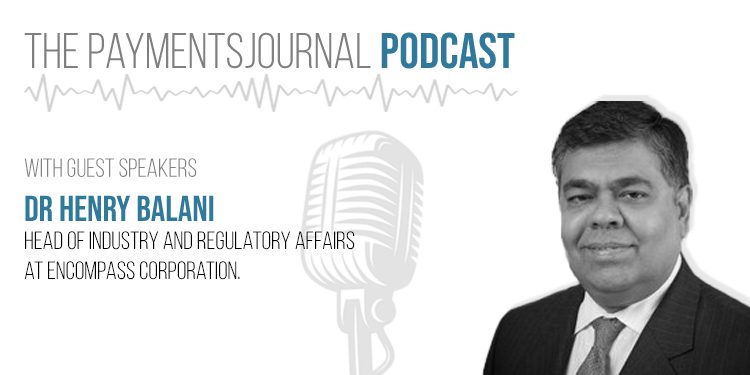Compliance and regulation can simultaneously be the most important and the most onerous aspects of business to manage. Our economy functions more efficiently and lawfully when everybody adheres to the same rules, but impacted financial institutions may find regulations stifling and difficult to effectively follow. How can RegTechs help with compliance?
One government bureau instituting financial regulations is the Financial Crimes Enforcement Network (FinCEN), which recently implemented new beneficial ownership requirements as part of the Corporate Transparency Act included in the Anti-Money Laundering Act of 2020. Various RegTechs are currently arguing for access to FinCEN’s beneficial ownership register, in large part because making the register available to RegTechs would help them more effectively address compliance requirements.
To learn more about FinCEN’s new corporate transparency act, why RegTechs want access to the beneficial ownership register, and how RegTechs support financial institutions (FIs) in completing their regulatory obligations, PaymentsJournal sat down with Dr. Henry Balani, Global Head of Industry and Regulatory Affairs at Encompass Corporation.
FinCEN, the Corporate Transparency Act, and beneficial ownership
Anti-money laundering (AML) and financial crime prevention efforts have been undergoing drastic changes in recent years. The Corporate Transparency Act (CTA), which was established in late 2020 and came into force in 2021, mandates FinCEN to ensure that legal entities such as financial institutions are following the Anti-Money Laundering Act by, among other things, submitting reports containing beneficial ownership information.
“What’s interesting is that this particular mandate is an expanded role of FinCEN,” explained Balani. FinCEN typically only has been involved in the collection of suspicious activity reports (SARs), which would then be passed on to the appropriate law enforcement agencies. But now, the scope of FinCEN’s reach includes maintaining the beneficial ownership registry, which catalogues lists of individuals, groups, and businesses that reap the benefits of ownership without officially having the title of owner.
Identifying ultimate beneficial owners (UBOs) is important because it can be challenging to determine, among all those who have power and influence across large organizations, who might be engaged in money laundering, terrorist financing, or otherwise illicit, sanctioned, or high-risk activities. Providing a broader set of data to governmental regulatory oversight helps people “follow the money” and keep all financial activities above board.
Why it is important for RegTechs to have access to the UBO database
The original intent behind FinCEN’s beneficial ownership registry was to keep tabs on suspicious activity related to financial crime, and to therefore limit registry access to relevant law enforcement agencies and the FIs submitting information. However, RegTechs (regulation technology companies), like Encompass, have been taking advantage the Notice of Proposed Rulemaking, a period of time during which federal agencies invite input from the general public after announcing new rules.
The problem is that the different corporations about which suspicious activity reports may be filed tend to be fairly complex. “They’re complex in the sense that they may have multiple subsidiaries within the organization,” said Balani, “and the subsidiaries may be offshore, and they may be in different countries, and they may even be in sanctioned countries.” Regarding sanctions specifically, large corporate entities with multiple levels of ownership may fall through the cracks of the Office of Foreign Asset Control (OFAC) since they only specify that the parent company will be sanctioned (or in the case of an exact 50/50 ownership split, both parties). Yet another challenge is that shell companies may be hidden away somewhere difficult to find.
RegTechs have the expertise and technology to help banks manage this kind of corporate structure identification in ways that banks cannot manage on their own. Encompass, in particular, can offer data pulled from multiple sources and compiled into an easy-to-understand corporate tree structure. This goal of ensuring comprehensive, diligent, top-tier KYC (Know Your Customer) would be made much easier and more effective with access to the beneficial ownership registries. Business structures can quickly shift or become quite convoluted, and expanding FinCEN’s intel to include RegTechs can help fight financial crime.
What the U.S. can learn from European RegTech precedents
Opening up banking and business ownership data for the purposes of AML and compliance is hardly unprecedented. “Austria, Denmark, Germany, Ireland, Poland, and the United Kingdom all have beneficial ownership registries that the public can access,” Balani pointed out. “It’s not only just firms like [Encompass]; the public can access them.”
The U.K.’s Companies House, established in 1844, is considered the gold standard – you do not even need to provide your information or a reason to see business ownership data such as names of directors or owners, shareholders and percentages of shares owned, citizenship, dates of birth and addresses of any persons of interest. “We have to recognize that what we are trying to do is move beyond simply commercial activities, and moving towards now fighting financial crime,” Balani elaborated.
Despite the advanced level of transparency with Companies House in the U.K., there is still reform underway. “You’ve got multiple actors that can fight financial crime,” noted Balani, “or at least provide intelligence and input towards doing that. It’s not just enforcement agencies – enforcement agencies rely on the public, and rely on the banks… There’s no reason why we can’t continue to extend that.” The U.S. currently only has a state register of corporate structures, but as noted above, it has been pursuing a federal register, and Regtech Firms like Encompass can help add to that fight against financial crime.
How Encompass automates corporate KYC due diligence
Validating the risk profile of an organization or individual is of vital importance, so identifying the underlying corporate structure is the essential focus for Encompass. “Banks and other regulated entities are required to conduct due diligence as part of the Know Your Customer onboarding process, or KYC for short,” Balani clarified. “It’s a fairly common activity.”
Encompass provides Software-as-a-Service (SaaS) using either onscreen lookups or APIs to let banks integrate with Encompass’ back-end platforms, where data has been assembled from various sources such as Companies House or the New York Stock Exchange. Encompass provides a centralized source and a rules mechanism based on certain parameters (e.g., jurisdiction or risk profile), so instead of the analysts having to spend hours or days scraping for information across the web, top-notch KYC can be accomplished in a matter of minutes.
“In a nutshell, what we’re doing is automating the uncovering of the corporate structure,” summarized Balani. Providing an automated picture of the hierarchy pyramid including less obvious ownership information increases efficiency and consistency for onboarding. The idea is that businesses should have the same frictionless onboarding experience as customers when dealing with banks. “We’ve been working with U.S.-based banks for quite some time,” noted Balani, “especially the large tier-one banks that recognize the value of these types of solutions.”
Finally, all of these processes happen in real time, which in today’s fast-paced climate is a huge boon. “The geopolitical landscape is dynamically changing,” said Balani. When new sanctions are announced on a daily basis, up-to-the-second information is critical to avoid financing a sanctioned entity, which would be disastrous from a policy enforcement perspective. Encompass helps mitigate risk even as financial crime rises and the world continues to evolve. “We need to make sure that we understand who the beneficial ownership owners are,” Balani concluded. “If you don’t, you’re in trouble.”










